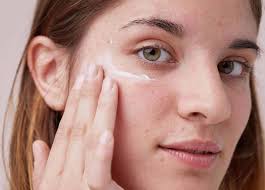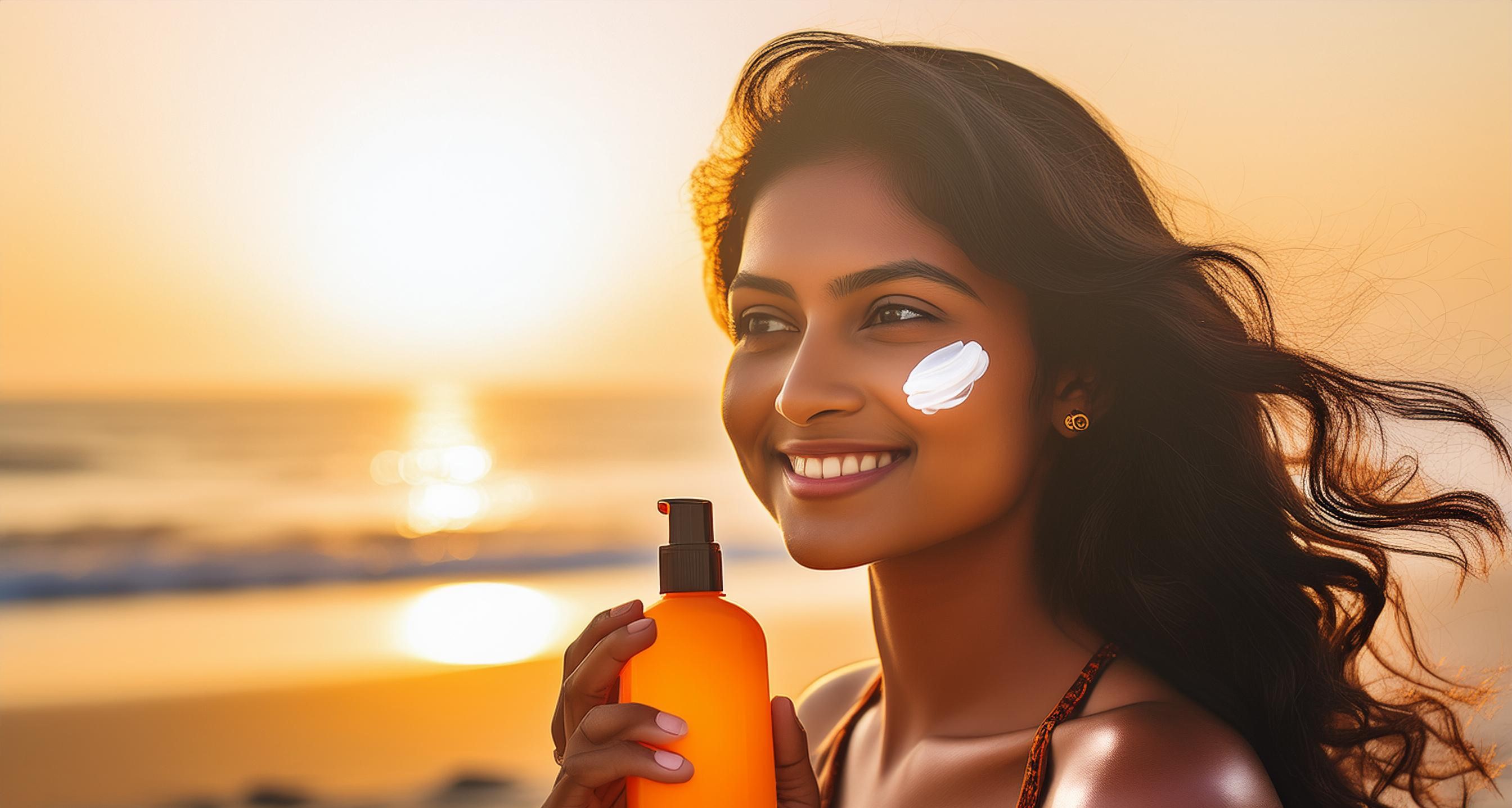Sunscreen which needs no introduction in today's world of skincare, helps us to protect our skin from the harmful UV rays from the sun. Sunscreen does its work by completely absorbing, reflecting, and scattering the harmful rays of the sun. They contain active ingredients such as organic and inorganic filters.
These organic filters help to protect our skin from the sun by quickly absorbing the UV radiation and converting it into heat, but inorganic filters like zinc oxide and titanium oxide help by blocking the UV radiation from entering the skin. We can also see, that sunscreens are available in different forms such as lotions, creams gels, etc. Also, the sunscreens vary in different levels of Sun Protection Factor(SPF).
What is SPF?
SPF is a Sun Protection Factor, it is a degree of protection of our skin against the sun's UVB rays that are the main reasons for sunburn and skin cancer. The SPF also contains the number or the levels of protection against the sun's rays(UVB rays).
Here's how it works:
| SPF 15 protects around 93% from UVB beams. |  |
| SPF 30 blocks around 97% of UVB beams. | |
| SPF 50 protects approximately 98% of UVB beams. |
The higher the SPF number, the more prominent the level of security against UVB beams. But you need to be sure that sunscreen alone can not give you 100% protection from the sun. SPF measures against the UVB beams so select a broad-spectrum sunscreen for optimum sun protection. It's prescribed to utilize sunscreen with at the slightest SPF of 30 and to apply it liberally and regularly, particularly when spending time outside, reapplying every two hours or more habitually if sweating heavily.
What type of sunscreen you should use?
In the skincare industry, there are several options available for sunscreens nowadays, you should select a sunscreen that is light and contains essential minerals. Make sure you use sunscreen 15 SPF or 30 SPF on over sunny days.
Most of the skincare routines you find online will continuously incorporate facial sunscreen as a significant portion of the method. This is why doctors suggest getting a two-in-one arrangement by choosing a daily moisturizer that as of now has SPF in it. That way, you'll mix your sun protection and skincare in one, quick step in the morning.
But be mindful:
 The sun protection in cosmetics may not be sufficient — be beyond any doubt to still match your skincare with sunscreen to keep you fully protected. Most SPF cosmetics moreover may not be adequate to secure your ears and neck, so stick to your normal sunscreen moisturizer for a few of those areas that are exposed to sun.
The sun protection in cosmetics may not be sufficient — be beyond any doubt to still match your skincare with sunscreen to keep you fully protected. Most SPF cosmetics moreover may not be adequate to secure your ears and neck, so stick to your normal sunscreen moisturizer for a few of those areas that are exposed to sun.
Furthermore, you ought to too apply sunscreen to the rest of your body that will be uncovered. This includes your arms, legs, back of the hands — even the tops of your feet in case you're not wearing shoes. A few sunscreens can be connected to both your body and face, but in case you're using specific facial sunscreen, it's best to switch to a full-body sunscreen for other spots like your arms, legs, and stomach. If you are someone having dry skin try to include a two-in-one body lotion with SPF.
Benefits Of Sunscreen:
1)Sunscreen protects your skin from the UVB rays from sun damage and best helps to prevent sunburn or irritation of the skin. It is also known to help with skin conditions such as acne and eczema.
 2)By applying sunscreen you can protect yourself from the rays that lead to skin cancer. By blocking UV rays before entering into the skin.
2)By applying sunscreen you can protect yourself from the rays that lead to skin cancer. By blocking UV rays before entering into the skin.
3)Sunscreen also helps from premature aging, wrinkles, brown spots, pigmentation, fine lines, etc.
4)It may help in maintaining skin texture by elevating hydration in skin cells as UVB rays may make the face look dull.
5)It may help to reduce certain skin problems such as hyperpigmentation, melasma, and even dark spots.
Including sunscreen in your skincare routine is best helpful in preventing harmful sun rays into your skin. Make sure you use a sunscreen that best protects your skin and is suitable for skin type. If you need any additional queries feel free to visit a dermatologist that can help you to clear all the queries regarding your skincare.
